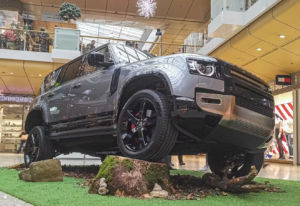Very few critical thinkers would suggest we can just keep going with our conspicuous consumption and extractive approaches to manufacturing goods and services for life here on this planet. We no longer live in that bucolic world of grass-fed local animals, farmers, and artisans who lived lightly on the planet.
So, if we are not going to limit population growth or legislate against nice things with another form of “sin taxes” that ultimately might reduce the growth rate of expensive cars, boats, planes … how are we going to ever make this planet livable and sustainable?
things with another form of “sin taxes” that ultimately might reduce the growth rate of expensive cars, boats, planes … how are we going to ever make this planet livable and sustainable?
Watching our 26-year-old son and his attitudes, I have a clue about what might work. If we redefine life as water, food, shelter, and comfort we can redesign our communities to be more “clustered” so that people can walk wherever they need to go and provide cluster-to-cluster public transportation to move people beyond their day-to-day boundaries. Right now, we are powering a 3-to-4-thousand-pound vehicle to get groceries, go to work, or to visit neighbors. Some cultures around the world use bicycles instead … here, if you do that you are going to the hospital or worse.
Yes, I grew up believing that owning a car gave me freedom, but I have come to realize it brings with it high insurance premiums, worries about others on the road causing a wreck, and so much wasted time getting here or there because we are not living in clustered communities.
I got this idea by watching our son who never wanted to drive but did so because his high school dropped the school bus to our neighborhood. His car is about 10 years old and only as about 13,000 miles on it. If I took the insurance costs alone and factored that into this mileage, it would have been cheaper to Uber anywhere he needed to go. Plus, half the time, he used it to get groceries, which could have been delivered to our door at lower costs.
Of course, it is kind of fun to go out and shop for our needs. It is so interesting to see all our choices, watch for sales, and pick out the produce that looks good to us: bananas at just the perfect ripeness, tomatoes that smell like they are fresh and juicy, and of course the perfect piece of fish, chicken, pork or beef for our intended meals.
We pack these into refrigerators 4-6 times larger than those found elsewhere in the world to eventually throw about half of it away because it spoiled. My brother lived in Australia where they shopped daily for their meat, dairy, and vegetables because the fridge was smaller than a file drawer!
He also experienced garbage police who warned him that if he persisted in mixing his garbage with recyclable items, they would stop picking up his garbage. There are places in the world that assign your new building a fixed-size transformer and electric service. You learn to live within that constraint … so thermal storage dominates the HVAC designs there, and of course all electrical uses are high efficiency.
We seem preoccupied with symbolic ideas that fail to move the needle in substantive ways. Choices in the supermarket are plastic, paper, or bring your own bag. In the great scheme of things, that is inconsequential.
Are we ready to rethink our basic ways of living?
